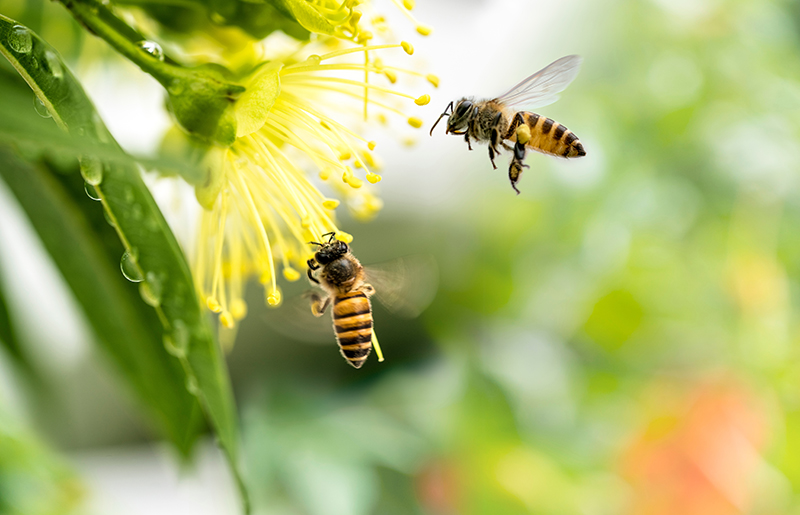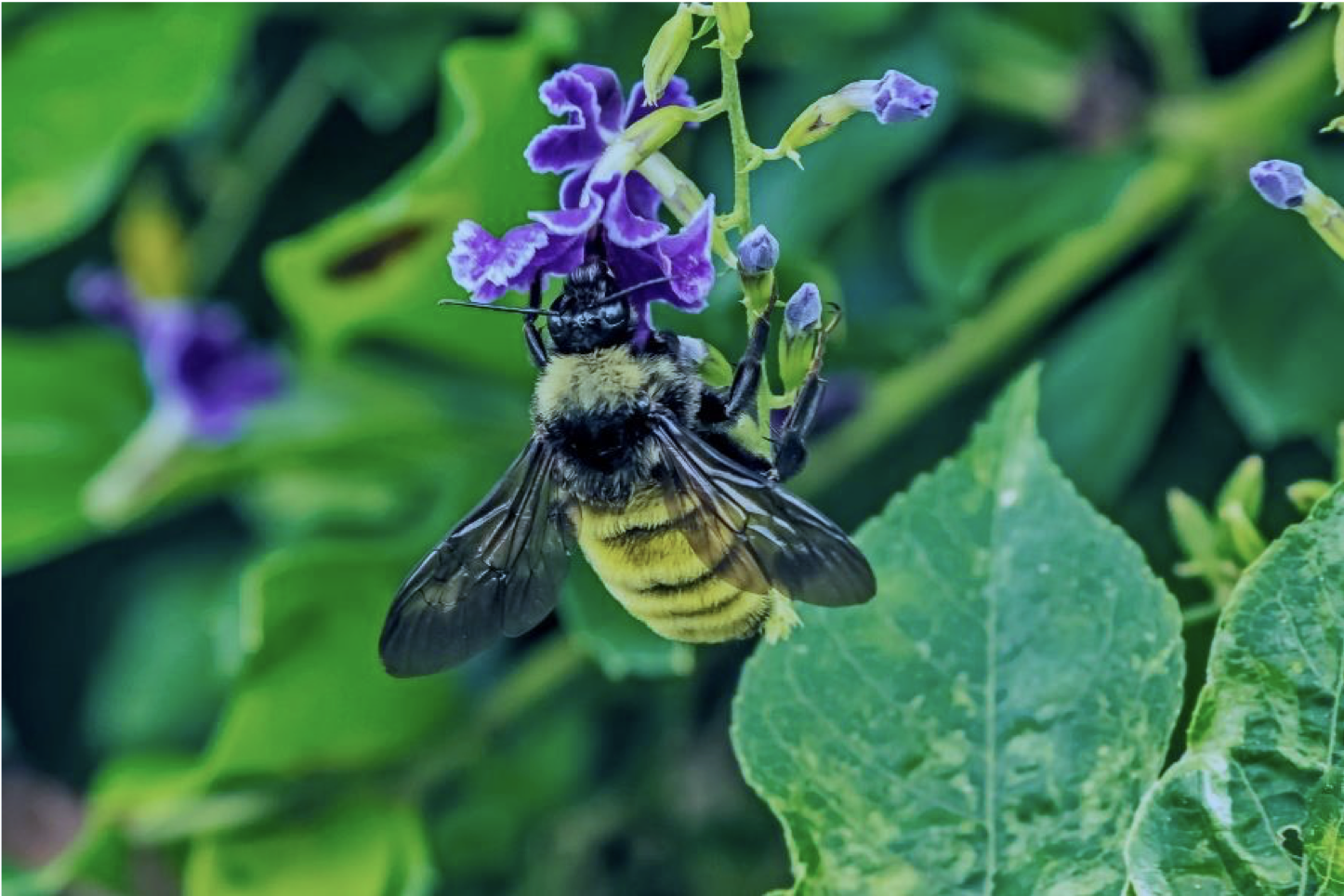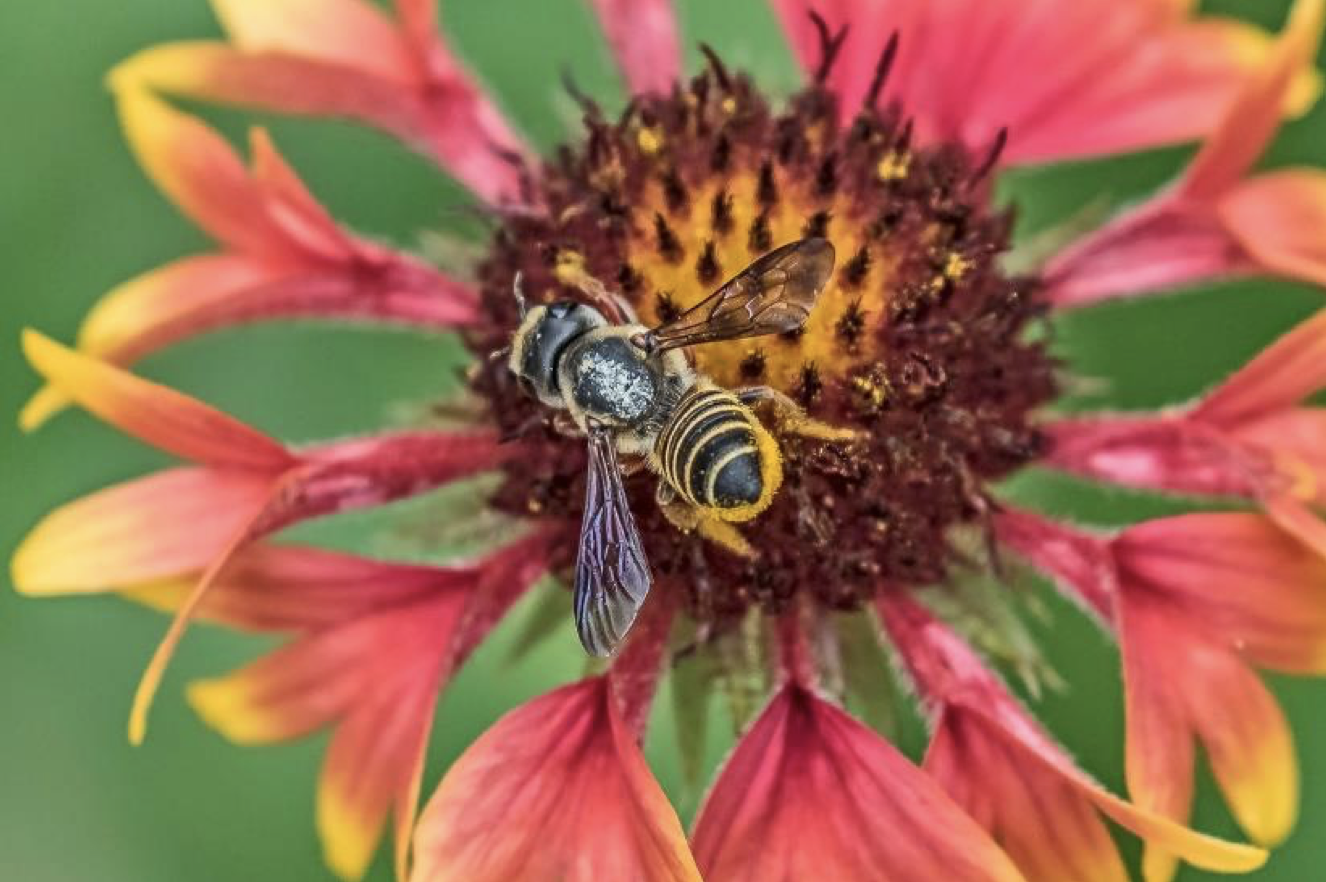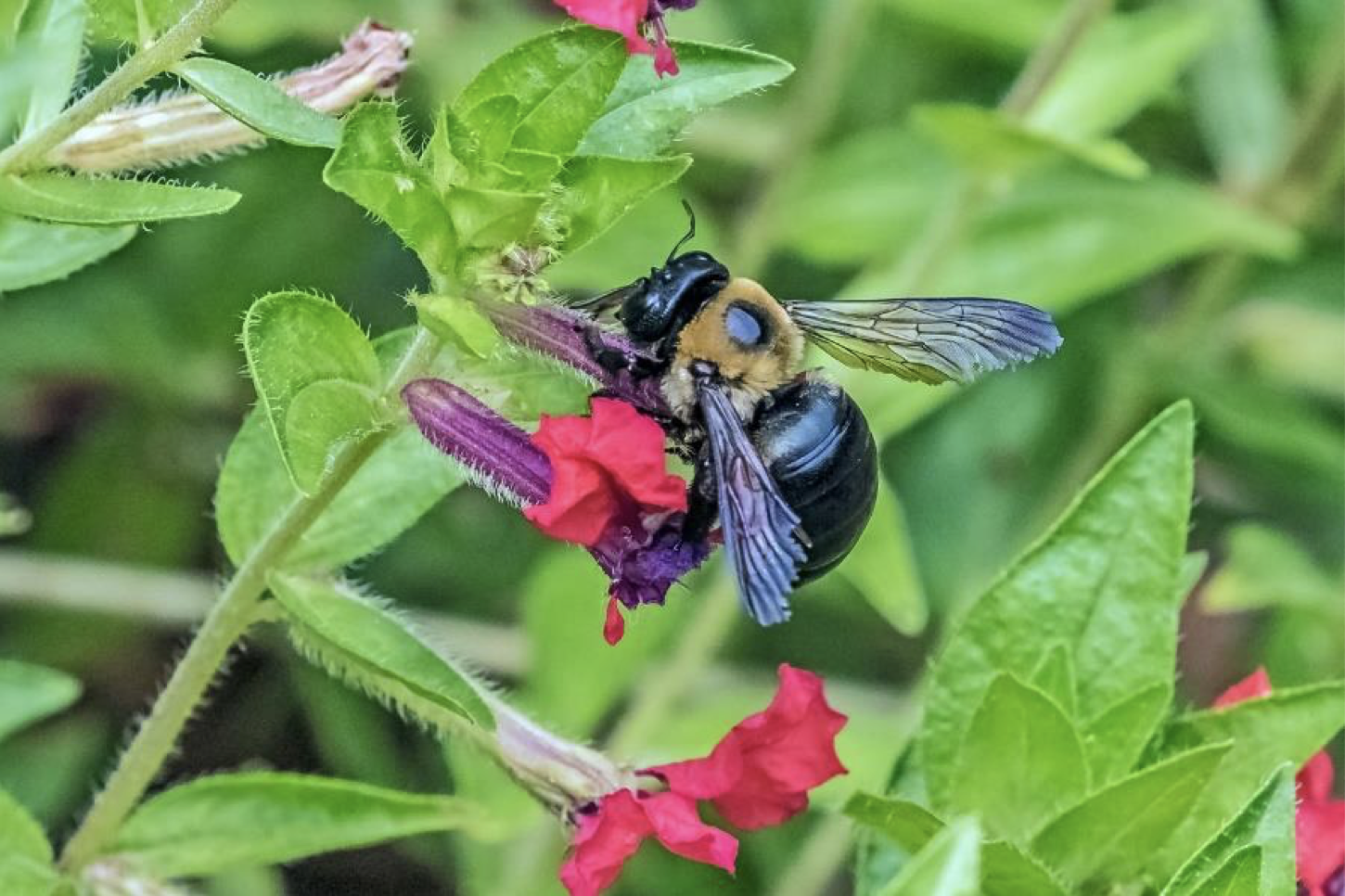
Buzzworthy News in Fort Bend
By Susan Whitacre, Associate Fort Bend Master Gardener
Our Fort Bend gardens are abuzz with honey bees and a variety of native bees of varying sizes with a multitude of fascinating habits! Not all bees produce honey, but all bees are pollinators. They play an essential role in supporting the production of seed and fruit, and they help preserve the diversity of our native plants and wildflowers. Since the 1950s, scientists have observed a significant decline in the number of European honey bees, mostly due to disease and parasites. This is of concern because some agricultural crops are dependent on honey bees for pollination. The Texas Parks and Wildlife Department has identified some species of native bees that are also in decline due to disease, parasites and most importantly, the loss of their habitat. About 35% of America’s crops rely to some extent on pollinators according to the USDA Natural Resources Conservation Service.
Motivated by the noble desire to support the declining European honey bee (Apis mellifera) population, backyard beekeeping has increased, but there is a lot to learn about the challenges and dangers of taking up Apiculture, especially in suburban communities. European honey bees are highly social and build fascinating architectural wonders of hives housing up to 15,000 workers. Beekeeping in small yards is not advisable since honey bees can swarm and nest in neighbors' houses, which can cost those neighbors up to $1,500 in eradication fees. Although honey bees are not normally aggressive, when threatened, European honey bees will sting and release pheromones which incite other bees in the hive to swarm and sting. This can be dangerous to surrounding neighbors, as some people have severe allergies to bee venom.
 Bumblebee
Bumblebee
Beekeepers in more urban areas face the additional challenges of contamination from uniquely urban sources. While we know that commercial honey has flavors, aromas and hues reflecting the wildflowers the bees have visited, urban beekeepers recognize that anomalies in color, aroma and flavor are signs of contamination. Honeybees in urban areas will forage for nectar and sweet liquid carbohydrates anywhere, including dumpsters.
A safer alternative to raising honeybees in suburban yards is to champion the conservation of our native bee populations. Most native bees are not aggressive and will sting only when handled. Also, native bees (except bumblebees) are solitary bees and nest below ground, in dried logs, or in hollow stems.
 Leafcutter Bee
Leafcutter Bee
You can help by:
- Providing a varied habitat for their nesting, such as bare ground for the ground-nesting bees, fallen sticks and logs for the cavity-nesting bees, and hollow plant stems for the stem dwellers.
- Providing “bee homes”. Texas native carpenter, leaf cutter and mason bees can’t resist depositing their eggs and pollen loaves in the chambers. (See https://xerces.org/blog/5-ways-to-increase-nesting-habitat-for-bees)
- Planting a variety of successive-blooming nectar plants to assure food throughout the seasons. Texas native plants are best for providing nutrients since native plants and native bees have evolved together over millennia.
- Waiting to mow your lawn as long as you can in the spring, as late as the end of May if possible, after the flowering season of our native plants. This delay provides a natural source of food in the early spring.
- Eliminating the use of chemical pesticides.
Even those bees perceived as nuisances like the industrious native carpenter bee (Xylocopa Latreille) are essential pollinators and deserve to be protected. Carpenter bees bore holes and tunnels in fallen trees or the untreated wood of your home. Although the male carpenter bee will buzz you, he can’t sting. However, the female can sting if handled.
 Carpenter Bee
Carpenter Bee
If you would like to learn more about these incredible, hard-working insects, the resources below are provided.
For honey bee information, visit here.
For information about protecting all pollinators, including bees, visit here.
For information about the best plants for native bees visit here and here.
For information about carpenter bees visit here.
For more detailed information visit here.
About Fort Bend County Master Gardeners
Fort Bend County Master Gardeners are trained volunteers who assist Texas A&M AgriLife Extension Service in educating the community using research-based horticultural information. For more information about the Fort Bend County Master Gardeners, please visit fbmg.org.
Source: Fort Bend County Master Gardeners






